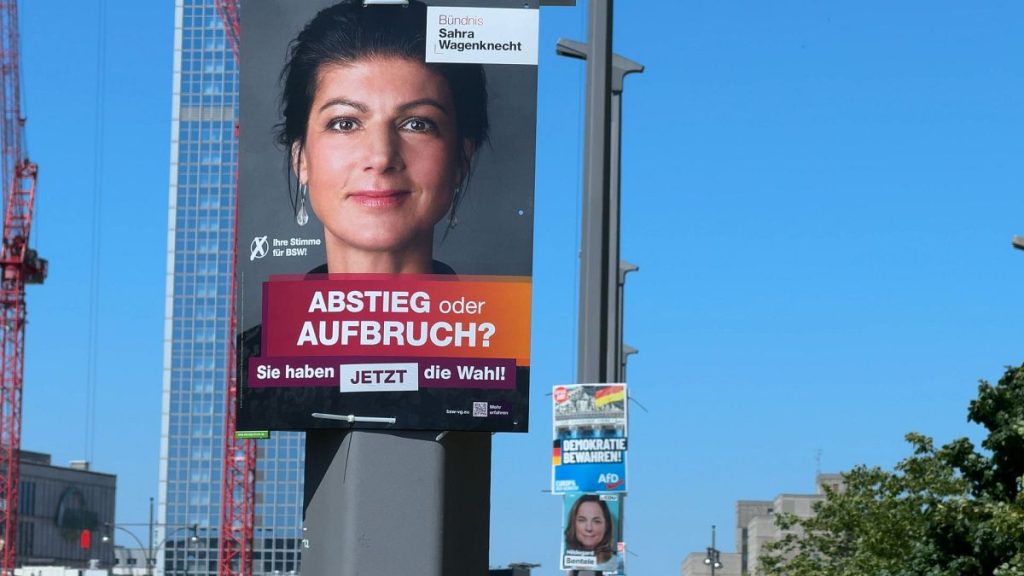BSW, a newcomer to German politics, was formed earlier this year and has already achieved success in the right-wing stronghold of Thuringia. Led by self-described left-wing conservative politician Sahra Wagenknecht, the party aims to split the AfD vote in upcoming European elections, potentially winning seven seats in the European Parliament. Wagenknecht advocates for raising the minimum wage, opposing weapons deliveries to Ukraine, and demanding transparency in stock transactions by politicians.
At a recent campaign event in Hamburg, Wagenknecht criticized the current traffic light coalition for their budget allocation and called for negotiations with Putin instead of sending weapons to Ukraine. BSW’s leading candidate, Fabio De Masi, also denounced alleged corruption at the federal level and demanded transparency in stock purchases by politicians. The party’s strategy of promising higher taxes on large companies and wealthy individuals has resonated with voters, leading to victories in local elections in Thuringia.
Many supporters at the Hamburg rally expressed their intention to vote for BSW, citing Wagenknecht’s perceived intelligence and reasonableness. They expressed concerns about the current political climate in Germany, with many backing Wagenknecht’s stance on Ukraine peace negotiations and halting weapon deliveries. The party’s focus on sensible politics and economic stability has struck a chord with voters who feel disillusioned with the current government and direction of the country.
BSW’s success in Thuringia and growing support suggest that it could emerge as a prominent far-left force in the European Parliament. However, Wagenknecht’s hard-line stance on immigration has created tensions with other left-wing factions, particularly Die Linke. This disagreement on immigration policy may hinder BSW’s ability to form a unified left-wing bloc after the elections, potentially causing challenges in the European Parliament.
Wagenknecht’s platform, described as left-wing conservative, combines socialist economic policies with conservative views on immigration. This unique approach has garnered attention and support, positioning BSW as an alternative to far-right parties in Germany. The party’s commitment to transparency, economic stability, and opposition to militarization has resonated with voters, leading to early successes in local elections and setting the stage for a strong showing in the European Parliament.
As BSW continues to gain momentum and support, its ability to influence German politics and shape the European Parliament remains to be seen. With a focus on addressing economic inequality, advocating for peace negotiations, and promoting transparency in government, the party’s platform resonates with a segment of voters disillusioned with mainstream parties. Wagenknecht’s leadership and the party’s early victories in Thuringia signal a growing appetite for alternative political approaches in Germany.













